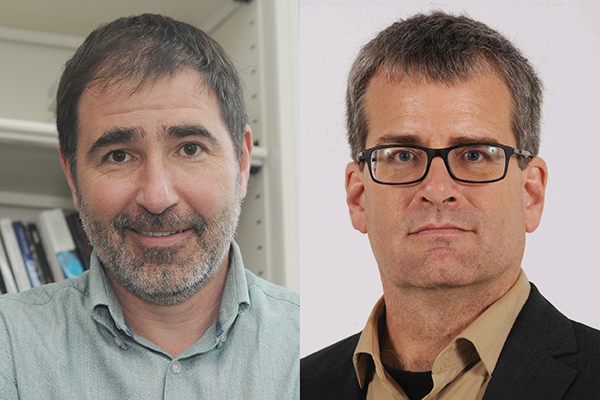News

Experts available to discuss update to Pope Francis' Laudato Si'
Theologian Vince Miller said Pope Francis is making it clear the world has not responded with the urgency that climate change demands by announcing a second part to his 2015 encyclical on the environment.
"It's highly unusual for the Catholic Church to issue two major documents on a topic within eight years. This is, after all, a church that thinks in centuries," said Miller, University of Dayton Gudorf chair in Catholic theology and culture, and editor of "The Theological and Ecological Vision of Laudato Si': Everything is Connected," a book on the spiritual, moral and scientific themes of Francis' encyclical on the environment.
The Paris agreement called for emissions to peak by 2025 and decline by 43% by 2030.
"But with those deadlines now looming, carbon emissions and temperatures have only increased — evident in our year of biblical scale fire, smoke, drought and floods," Miller said. "Nations have fallen far short of the commitments they made at Paris and the current round of U.N. Climate meetings will be hosted by the oil-rich United Arab Emirates in Dubai, led by the CEO of an oil company.
"As leaders dither while the world burns, Francis issues a moral and spiritual challenge to a climate process that has not yet responded to the urgency of the threats we face," he said.
Francis' follow-up to Laudato Si' — expected to be released Oct. 4, the Feast of St. Francis of Assisi, patron saint of ecology — will be an apostolic exhortation, a practical application and another call to action, MIller explained. Francis' Laudato Si' was an encyclical, a teaching document, which he used to challenge both the Catholic Church and global leaders to urgent action.
"Francis speaks to a divided world and a divided church. He quotes abundantly from the environmental and social teachings of his predecessors, John Paul II and Benedict XVI," Miller said. "Unlike them, he faces a world where dissent is supercharged by social media, where people receive their news and indeed theology, from viral tweets more than considered articles or homilies."
As was the first edition, the update is just as important for non-Catholics, even if written by the leader of the Catholic church, said Bob Brecha, professor and director of UD's sustainability program.
"What the encyclical calls on humanity to do — leave the world a better place for future generations and follow the Golden Rule of doing unto others as one would want done unto them — is not exclusive to any religion, faith tradition or belief system," Brecha said. "Because emissions in richer countries affect people in poorer countries who have less capability to adapt to climate change and will suffer the severest consequences first and the emissions of today will have lingering effects for centuries, the encyclical emphasizes a need to have a deep empathy for others, especially those less fortunate, regardless of where and when they live."
Miller and Brecha are available to the media to explain the importance of both Laudato Si' and the follow-up expected Oct. 4. National media turned to Miller and Brecha in 2015 to explain the importance of Laudato Si', including The New York Times, National Catholic Reporter, America, Huffington Post and others. They can be reached by contacting mediarelations@udayton.edu.
